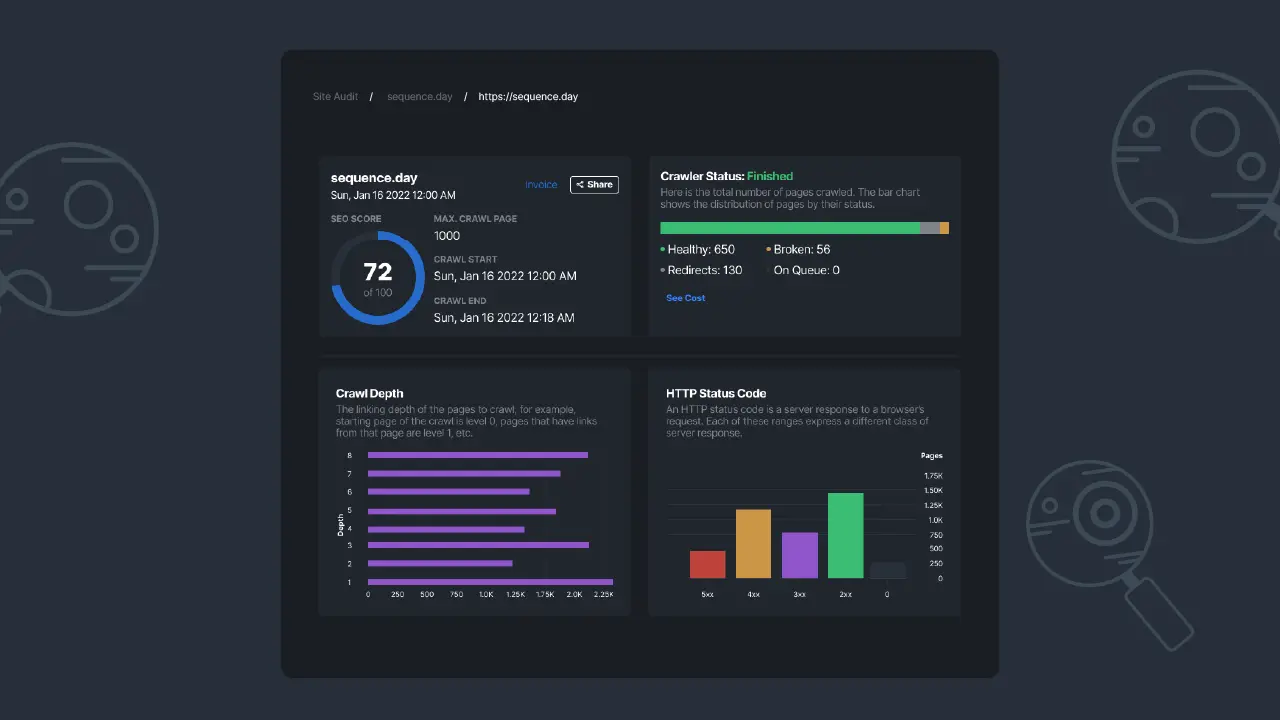How to Fix Low Word Count SEO Issue
As search engines continually refine their algorithms to provide users with the most relevant and comprehensive results, content length has emerged as a critical factor in search rankings.
Sometimes, the low word count SEO issue can be a significant problem that needs an immediate fix. This is due to the impact of the right balance in word count in the website's optimization strategy.
In this article, we will uncover how to fix low word count issues and conduct the right site audit for all of your content.
What Is a Low Word Count Issue?
A low word count issue refers to a situation where the content on a webpage or document is significantly shorter than what is considered optimal for conveying comprehensive and valuable information.
In the context of SEO and content marketing, low word count can negatively impact a page's performance in search engine rankings and user engagement.
When content lacks sufficient length, it may fail to adequately address the topic, provide in-depth information, or answer user queries comprehensively.
The Impact of Low Word Count on Website Performance
Google considers it an issue when the page intent is just to capture keywords in the SERP. Thus, this issue should be fixed immediately. Low word count issues can also lead to several drawbacks, such as:
- Reduced Relevance: Content that is too brief may not cover a topic comprehensively, leading to a decrease in relevance for specific search queries.
- Limited Keyword Opportunities: Longer content allows for the inclusion of a wider range of relevant keywords, improving the page's chances of ranking for various search terms.
- Poor User Experience: Users searching for detailed information may be dissatisfied with concise content that lacks depth. This can result in a high bounce rate and reduced user engagement.
Google View on Low Word Count
Google's stance on low word count is quite clear, it's not directly a ranking factor. This means that simply having a short or long piece of content won't automatically hurt or boost your SEO.
However, the issue is a bit more nuanced than that. Regardless of the word count, Google wants content that is informative, helpful, and relevant to the user's search query. Therefore, the content should comprehensively address the topic. This doesn't necessarily mean needing a ton of words, but enough to satisfy the user's intent.
So, why does word count still matter?
While word count itself isn't a ranking factor, some topics might be naturally covered more comprehensively in longer content. So, if you're aiming for high rankings on competitive topics, a shorter piece of content might struggle against more thorough ones.
Besides, users might expect a certain level of detail for specific topics. For example, someone searching for "how to install a garden shed" might expect a more in-depth guide than someone looking for "quick appetizer ideas."
How to Fix Low Word Count
Focus on creating high-quality, relevant content that thoroughly addresses the user's intent. Word count should be a natural consequence of providing the best possible experience for your audience. If your content is concise and impactful, it can still rank well regardless of its length.
However, here are some steps you can take if you deal with low word count issues on your content.
1. Site Audit
First of all, conduct a site audit to detect any content with a low word count. You can utilize Sequence Stats Site Audit which checks overall website health, including content issues.
 |
|---|
| Picture 1 - Sequence Stats Site Audit on content. |
2. Expand on Existing Content
Next, go deeper into your content by providing more details, examples, or case studies to flesh out key points.
Additionally, anticipate and address common questions users might have about a particular topic. This way, you can offer more of what users can expect from reading your content.
3. Integrate Additional Elements
To support users' understanding, add visuals such as images, infographics, or videos to break up text and enhance understanding. This way, you can improve the user engagement in your content.
4. Consider Content Type
Each content type might have a different minimum length to be published. Below are the common lengths of some content:
- Blog posts: Aim for around 600-1000 words for average topics, but adjust based on complexity and competition.
- Product descriptions: Provide sufficient details for informed decisions, around 300-500 words is a good starting point.
- Landing pages: Focus on key messages and calls to action, keeping content succinct and compelling.
Remember, word count is a guideline, not a strict rule. Therefore, put your first priority on creating content that fulfills user intent and provides valuable information clearly and engagingly. Longer content can be beneficial, but only when it genuinely enhances the user experience.
To help you carry out the site audit, use Sequence Stats and enjoy the benefits. No more missed site audits for you can schedule them automatically. Go register your account now!